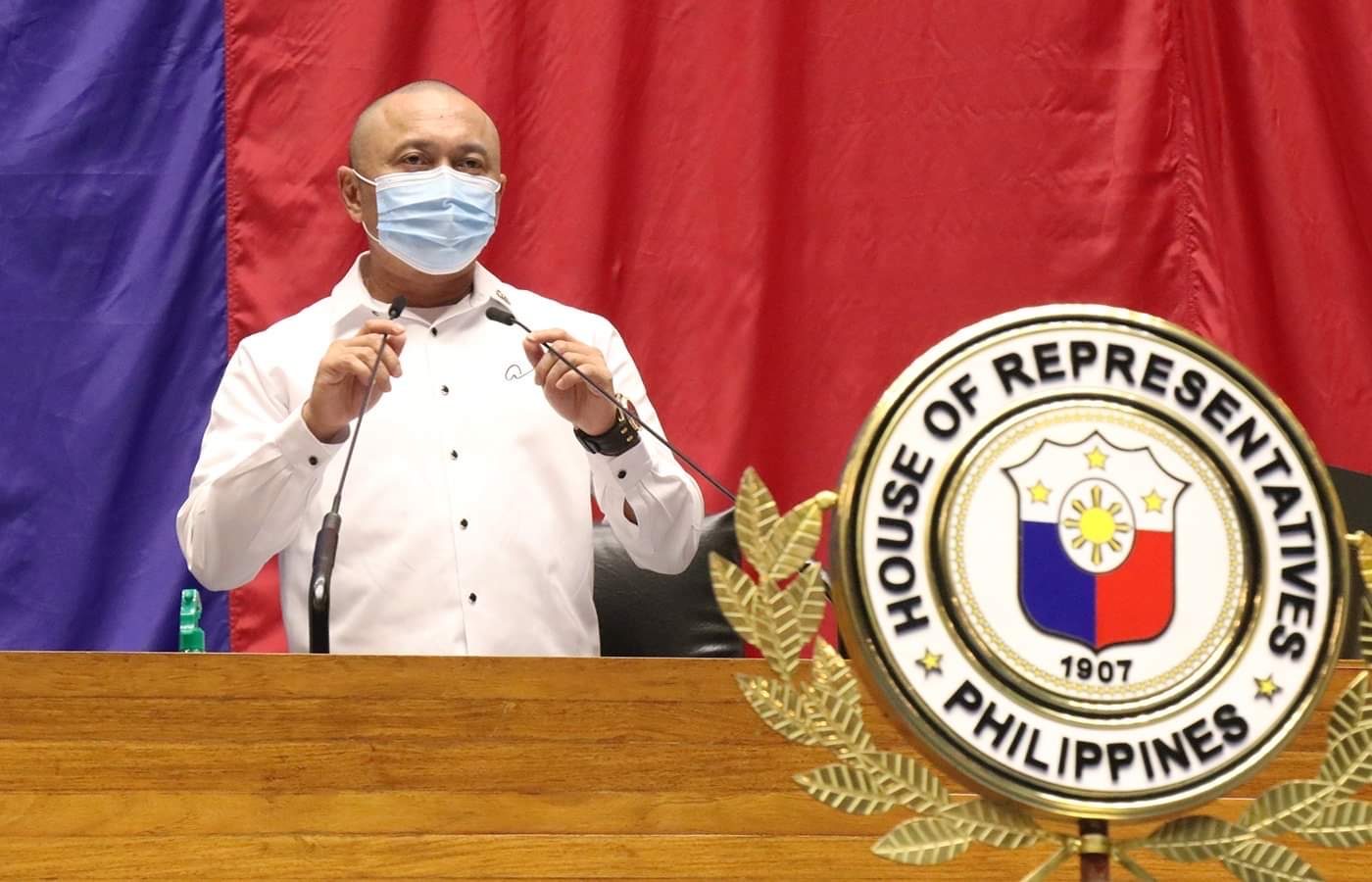SUMMARY
This is AI generated summarization, which may have errors. For context, always refer to the full article.

MANILA, Philippines – The downfall of politician Arnie Teves at the House of Representatives stands out because no one else in the history of the lower chamber had been unseated in such a manner.
Teves underwent the process of expulsion, the gravest penalty that can be imposed on a lawmaker, as prescribed in Article VI, Section 16(3) of the 1987 Constitution, which states that the House may punish its members for disorderly behavior.
“With the concurrence of two-thirds of all its members, [each House] may suspend or expel a member. A penalty of suspension, when imposed, shall not exceed 60 days,” the Constitution read.
Section 143 of the current House Rules also doubles down on such a vote requirement.
The House has 312 members, which means that only 208 votes in favor of expulsion were needed to boot Teves out of office. The ethics committee report garnered 265 affirmative votes.
Teves, the alleged mastermind in the killing of Negros Oriental governor Roel Degamo, was called to account for his continued absences, attempts to seek asylum in Timor-Leste, and indecent behavior on social media.

Nicanor de Guzman case
Before Teves, only one lawmaker came close to suffering the same fate as the former Negros Oriental lawmaker.
Congressional records provided by House Secretary General Reginald Velasco to Rappler back in May noted that there was one other time in 1990 when the ethics committee also recommended the penalty of expulsion against an errant lawmaker.
That congressman was Nicanor de Guzman Jr., who was arrested in September 1989 for trying to smuggle over 300 firearms through the Ninoy Aquino International Airport.
When the ethics committee report was forwarded to the plenary, lawmakers moved to reduce the punishment to a 60-day suspension.
In August 1990 or nearly a year after the NAIA incident, the Pasay Regional Trial Court found De Guzman guilty of gun smuggling. Instead of getting expelled, he voluntarily resigned from the chamber.
Newspaper reports said that he started serving his sentence in the mid-1990s, but was granted pardon by then-president Joseph Estrada due to old age. He made an unsuccessful political comeback bid in 2004, and died in 2012 at age 80.
Others dropped from the rolls after conviction
There were others who were stripped of their congressman titles, but not expelled in the strictest sense as described in the Constitution.
For example, Romeo Jalosjos of Zamboanga del Norte’s 1st District was dropped from the rolls sometime in 2002 after the Supreme Court upheld his conviction for raping a minor. It did not require a committee or plenary vote.
In June 2012, the House also dropped Ruben Ecleo Jr. of Dinagat Islands from its rolls through an order signed by then-House speaker Feliciano “Sonny” Belmonte Jr. No expulsion proceedings also took place.
The Supreme Court found Ecleo guilty of graft and corruption over anomalous infrastructure projects when he was mayor of San Jose, Dinagat Islands, from 1991 to 1994. He was in hiding for years, until authorities arrested him in Pampanga in 2020. He died in jail in May 2021.
The High Court convictions against Jalosjos and Ecleo carried the penalty of perpetual disqualification from public office.
Losing seat due to other reasons
Other lawmakers got the ax due to reasons ranging from less controversial to criminal.
In March 2011, Ronald Singson of Ilocos Sur was dropped from the House rolls after he submitted his resignation letter, in the wake of a drug conviction in Hong Kong.
In November 2018, the House removed Eugene de Vera from its list of members after his party-list group ABS expelled him.
In February this year, Jeffrey Soriano resigned from the House to give way to broadcaster and former social welfare chief Erwin Tulfo, who now holds the last seat of their party-list group ACT-CIS.
The same month, the House kicked Nicolas Enciso VIII out of Congress after his party-list group Bicol Saro expelled him. He was replaced by political operative and broadsheet columnist Brian Yamsuan. – Rappler.com
Add a comment
How does this make you feel?
![[Just Saying] SONA, Congress, accountability, and free speech](https://www.rappler.com/tachyon/2024/07/TL-SONA-congress-accountability-free-speech.jpg?resize=257%2C257&crop=330px%2C0px%2C1080px%2C1080px)
![[Just Saying] Reciting a hymn and pledge: Illegal, punitive, unconstitutional](https://www.rappler.com/tachyon/2024/06/20240612-reciting-hymn-pledge-unconstitutional.jpg?resize=257%2C257&crop=338px%2C0px%2C720px%2C720px)
![[Just Saying] Demonizing divorce and the mockery of our Constitution](https://www.rappler.com/tachyon/2024/06/TL-Demonizing-divorce-mocking-constitution-June-6-2024.jpg?resize=257%2C257&crop=265px%2C0px%2C720px%2C720px)
![[ANALYSIS] A Rube Goldberg cartoon of our inconvenient reality](https://www.rappler.com/tachyon/2024/05/tl-inconvenient-reality-05092024.jpg?resize=257%2C257&crop=280px%2C0px%2C720px%2C720px)
![[Vantage Point] Philippine economic reforms run into headwinds](https://www.rappler.com/tachyon/2024/05/ph-economic-headwind-may-2024.jpg?resize=257%2C257&crop_strategy=attention)





There are no comments yet. Add your comment to start the conversation.